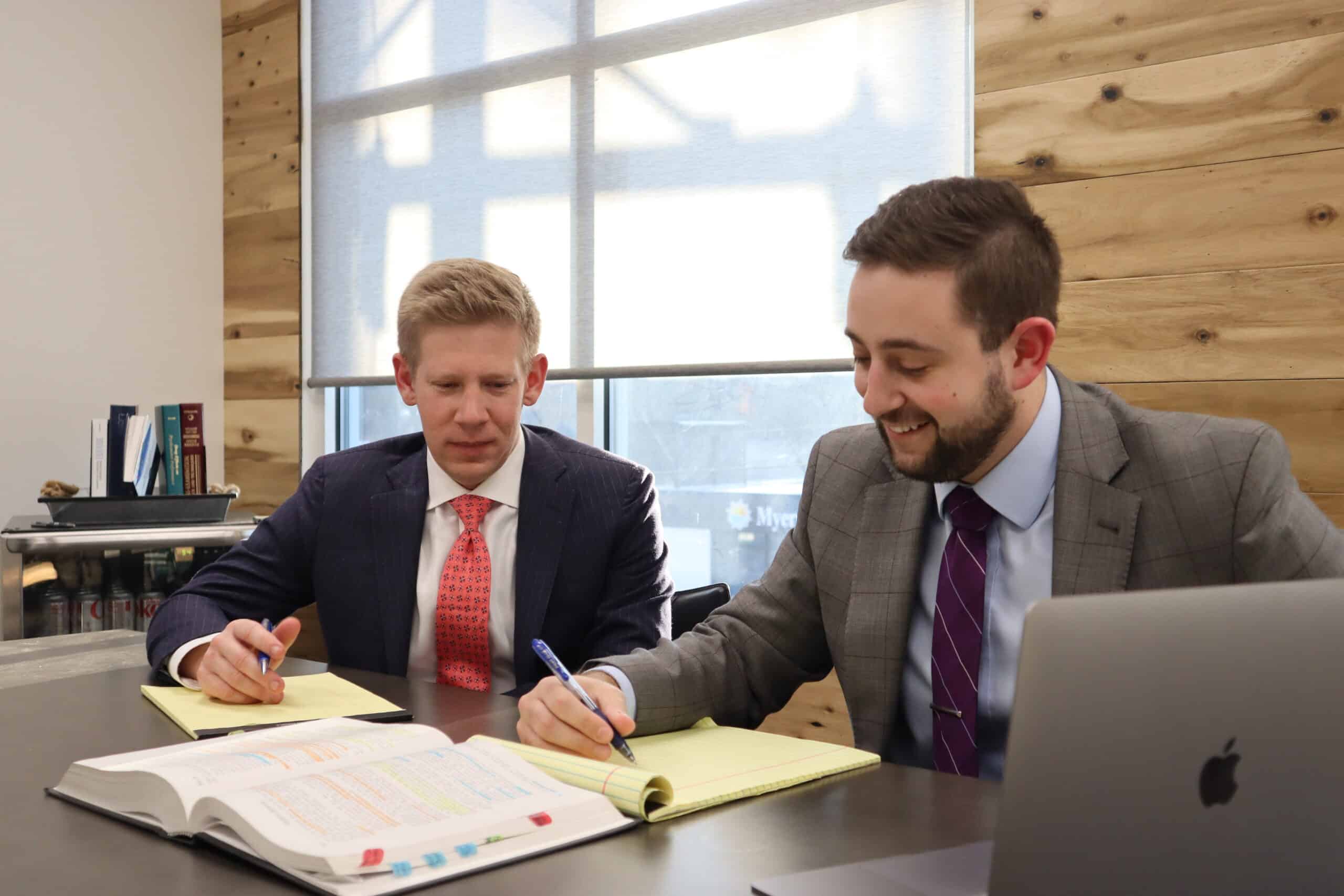Home » Theft Crimes
THE BARNES & Fersten Knoxville Theft Crime Attorneys
KNOXVILLE PROPERTY CRIMES ATTORNEY IN TN
CALL THE BARNES & FERSTEN FIRM 24 HOURS A DAY, 7 DAYS A WEEK

Knoxville Theft Defense Attorneys
Individuals facing theft charges are usually anxious, nervous and scared of how a theft charge may impact their future. It is important to remember that you are innocent until proven guilty and just being cited or arrested for theft does not necessarily mean that you will be convicted of theft. A theft conviction can have serious consequences such as jail time, fines, loss of employment or a conviction on a background check, probation, and restitution, among other consequences.
At Barnes & Fersten, our award winning Knoxville criminal defense lawyers have helped many individuals who were in a similar position as you may currently be in facing theft charges. Our attorneys have represented individuals charged with misdemeanor and felony theft charges, burglary, white-collar theft charges such as theft of services, among other theft charges.
Theft of Property:
A person commits theft of property if, with intent to deprive the owner of property, the person knowingly obtains or exercises control over the property without the owner’s effective consent.
Shoplifting is a common theft of property offense.
Theft of Services:
(a) A person commits theft of services who:
(1) Intentionally obtains services by deception, fraud, coercion, forgery, false statement, false pretense or any other means to avoid payment for the services;
(2) Having control over the disposition of services to others, knowingly diverts those services to the person’s own benefit or to the benefit of another not entitled thereto; or
(3) Knowingly absconds from establishments where compensation for services is ordinarily paid immediately upon the rendering of them, including, but not limited to, hotels, motels, and restaurants, without payment or a bona fide offer to pay.
Is theft a misdemeanor or felony? What is the punishment for theft?
Theft can be a misdemeanor or felony charge depending on the value of the goods or services that were allegedly stolen or obtained as follows:
- Class A Misdemeanor:$0-$1,000: punishable by up to 11 months and 29 days in jail and a $2,500 fine.
- Class E Felony: $1,001-$2,499: punishable by 1 – 6 years in prison and a fine up to $3,000.
- Class D Felony: $2,500-$9,999: punishable by 2 – 12 years in prison and a fine up to $5,000.
- Class C Felony: $10,000-$59,999: punishable by 3 – 15 years in prison and a fine up to $10,000.
- Class B Felony: $60,000-$249,999: punishable by 8 – 30 years in prison and a fine up to $25,000.
- Class A Felony: $250,000+: punishable by 15 – 60 years in prison and a fine up to $50,000.
Robbery, Aggravated Robbery and Especially Aggravated Robbery Defense Attorneys
Robbery:
Robbery is a serious felony offense in Tennessee ranging from a Class C Felony to the most serious offense possible as a Class A Felony depending on the facts and circumstances of the case.
Robbery is theft but in a more serious manner by physically taking the property from a person. As such, a simple theft of property less than $1,000, or even less than $10,000 can be enhanced from a misdemeanor or Class E or D felony theft to robbery as a Class C Felony.
Robbery, a Class C Felony, occurs when an individual:
- Stole property from another;
- By means of violence or putting the person in fear.
Aggravated Robbery:
Robbery, as defined above, becomes aggravated robbery, a Class B felony, if the robbery:
(1) Involved a deadly weapon or made the victim reasonably believe there was a deadly weapon; 0r
(2) Resulted in a serious bodily injury.
Especially Aggravated Robbery:
When the robbery includes (1) the use of a deadly weapon; and (2) results in a serious bodily injury, the robbery becomes especially aggravated robbery, a Class A felony.

Knoxville Burglary Defense Attorneys
Burglary:
Burglary usually includes theft but it may also be the result of an assault or another felony.
Burglary, “breaking and entering” law, results when an individual enters a building, vehicle, or a place not open to the general public with the intent to commit theft, assault, or a felony offense.
Burglary is classified as follows:
- Class E felony: Burglary involving a vehicle
- Class D Felony: Burglary involving a non-residential building
- Class C Felony: Aggravated burglary involving a house, apartment or any other dwelling
- Class B Felony: Especially aggravated burglary the entering of any building that results in a serious bodily injury.
Do you have to “break in” to be charged with burglary?
No, although burglary is the “breaking and entering” law there does not necessarily have to be any breaking into the property for it to constitute as burglary. Entering property without the owner’s permission is enough to constitute as burglary. For example, opening a residential house with the intent to steal, even if the door is unlocked, can result in a burglary charge.
Similarly, entering a residential store after you have been banned from the store with the intent to steal, commit a felony or commit assault will constitute burglary. This trespassing with the intent to steal argument was made in a famous Knoxville Walmart case that was decided by the Tennessee Supreme Court in 2019 in State v. Welch.
People are often surprised to be charged with burglary simply for breaking and entering. Perhaps a door was broken down. Perhaps a building was entered without the owner’s permission. These actions are all that is necessary to be charged with burglary.
As an offense against property, burglary refers to entering a building or vehicle with the intent to commit a theft, assault, or some other felony. Burglary is sometimes known as “breaking and entering.” It is important to understand that you could face burglary charges even if you do not take anything or commit any other crime. If the prosecution can prove your intent, a conviction is possible.
Burglary involving a vehicle is a Class E felony. The charge is a Class D felony for a non-residential building. Aggravated burglary is a burglary of a house, apartment, or any other dwelling and is a Class C felony. The burglary of any building that results in serious injury to the victim is a Class B felony for especially aggravated burglary.
Offenses such as vandalism and criminal trespass also fall under the category of burglary charges. These crimes are typically handled as misdemeanors, though felony charges are possible depending on the circumstances.
CONTACT BARNES & FERSTEN TODAY FOR A FREE THEFT, ROBBERY OR BURGLARY CONSULTATION SO WE CAN BEGIN TO FORM A SPECIFIC STRATEGY FOR YOUR DEFENSE
When it comes to fighting the legal charges brought against you, it’s important to know that you have rights. A misdemeanor or felony theft, robbery or burglary charge is no different. However, having rights might not do you any good, if you are not familiar with them. We will make you aware of what those rights are, and how they can apply to your case. We represent individuals charged with theft, robbery and burglary across East Tennessee, including but not limited to Knox County, Loudon County, Anderson County, Blount County, Sevier County, Union County, McMinn County, and Roane County.




























